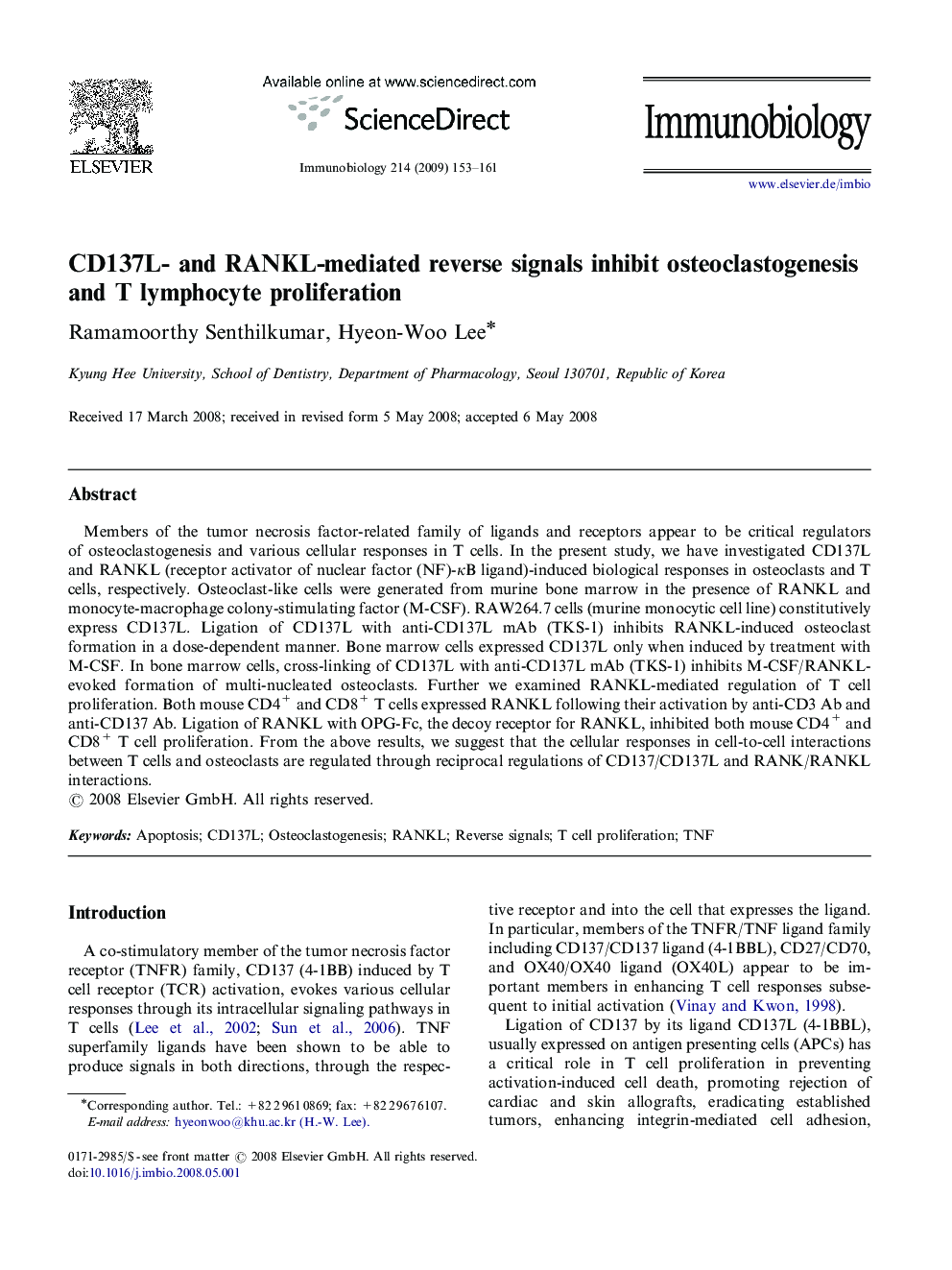| Article ID | Journal | Published Year | Pages | File Type |
|---|---|---|---|---|
| 2183497 | Immunobiology | 2009 | 9 Pages |
Members of the tumor necrosis factor-related family of ligands and receptors appear to be critical regulators of osteoclastogenesis and various cellular responses in T cells. In the present study, we have investigated CD137L and RANKL (receptor activator of nuclear factor (NF)-κB ligand)-induced biological responses in osteoclasts and T cells, respectively. Osteoclast-like cells were generated from murine bone marrow in the presence of RANKL and monocyte-macrophage colony-stimulating factor (M-CSF). RAW264.7 cells (murine monocytic cell line) constitutively express CD137L. Ligation of CD137L with anti-CD137L mAb (TKS-1) inhibits RANKL-induced osteoclast formation in a dose-dependent manner. Bone marrow cells expressed CD137L only when induced by treatment with M-CSF. In bone marrow cells, cross-linking of CD137L with anti-CD137L mAb (TKS-1) inhibits M-CSF/RANKL-evoked formation of multi-nucleated osteoclasts. Further we examined RANKL-mediated regulation of T cell proliferation. Both mouse CD4+ and CD8+ T cells expressed RANKL following their activation by anti-CD3 Ab and anti-CD137 Ab. Ligation of RANKL with OPG-Fc, the decoy receptor for RANKL, inhibited both mouse CD4+ and CD8+ T cell proliferation. From the above results, we suggest that the cellular responses in cell-to-cell interactions between T cells and osteoclasts are regulated through reciprocal regulations of CD137/CD137L and RANK/RANKL interactions.
